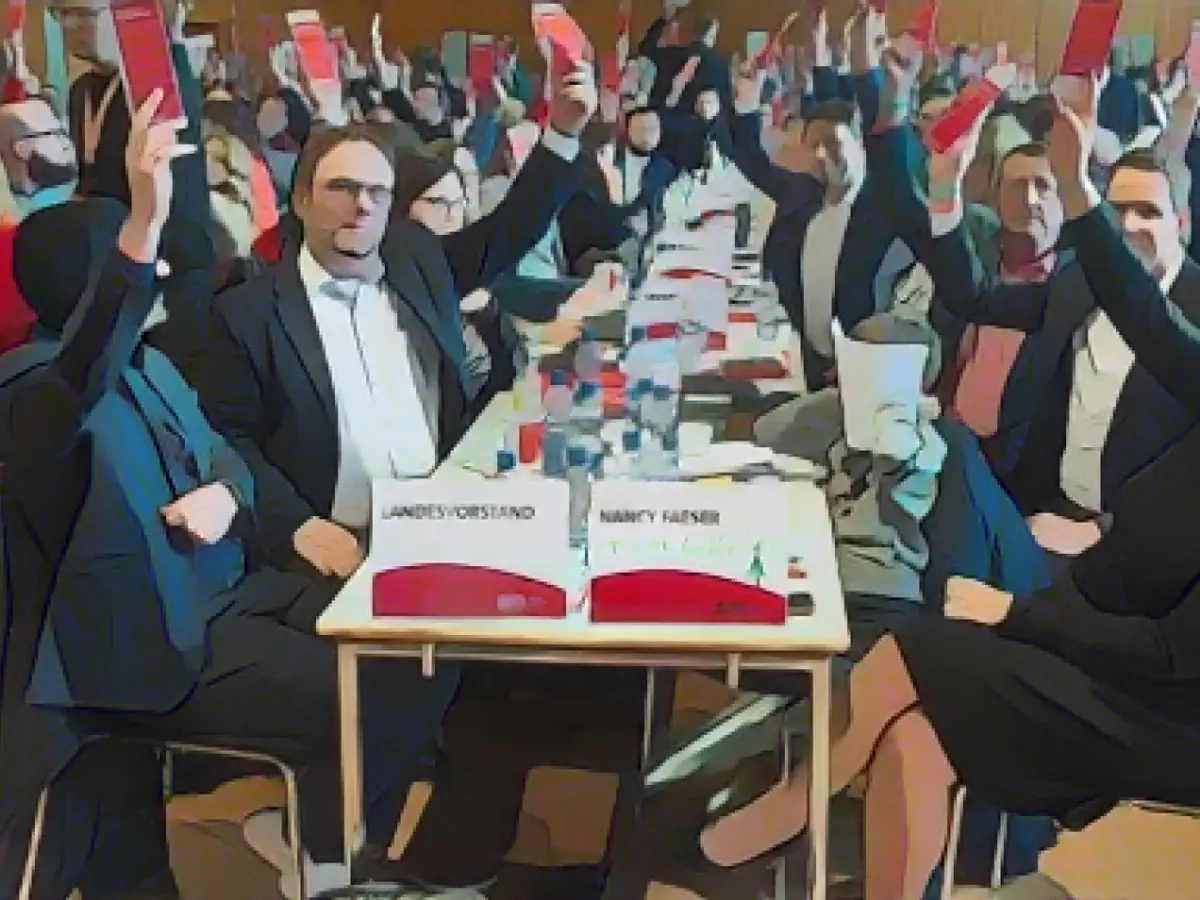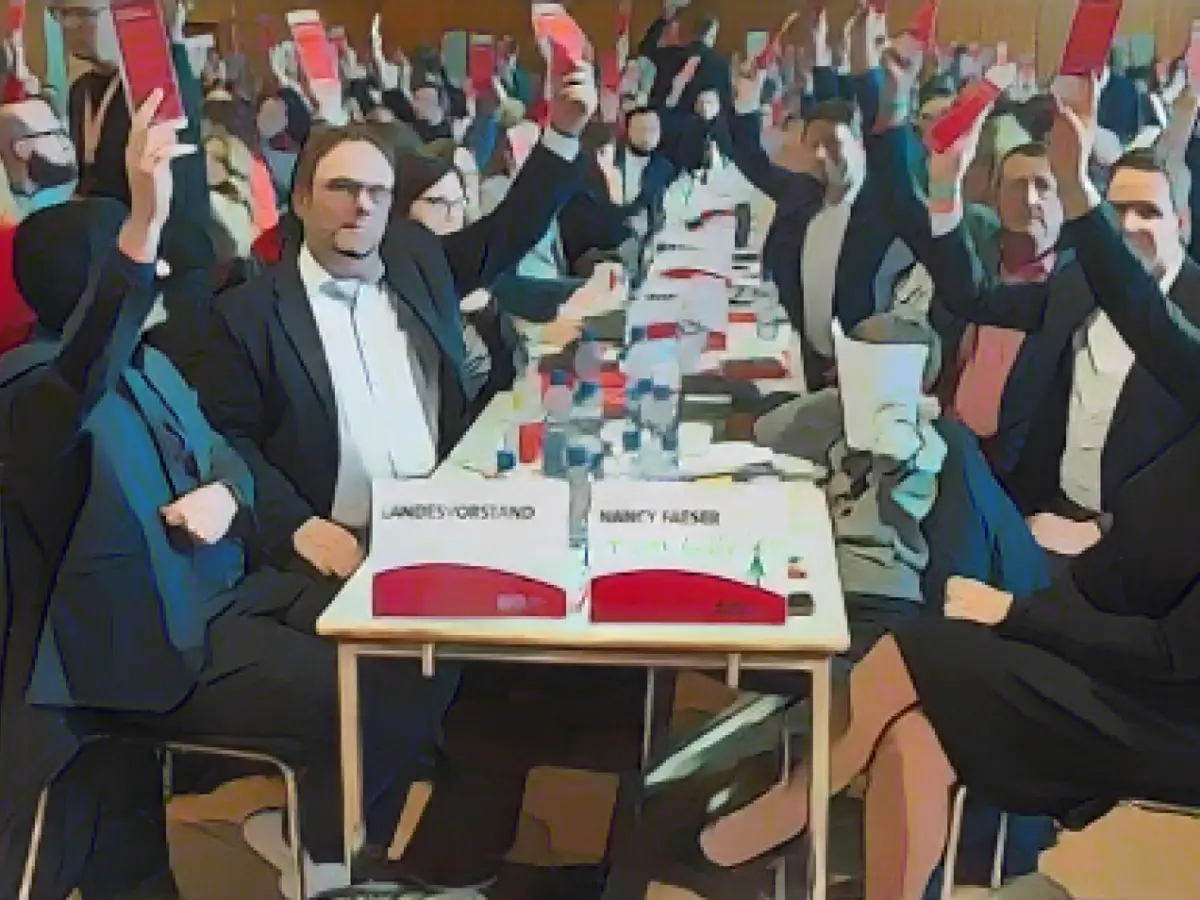In the aftermath of Hesse's state elections, a deal has been struck between the CDU and SPD. This cooperation agreement, with the catchy slogan "One for all," has been unveiled, according to sources at the German Press Agency. The 184-page draft, now accessible to dpa, promises to tackle various challenges the state is currently facing.
Scheduled for approval this Saturday, December 16, the CDU will decide upon the agreement at their state committee meet in Frankfurt, while the SPD will vote at their party conference in southern Hesse's Groß-Umstadt. The signing ceremony is expected to take place on December 18.
Hesse's political landscape has been under the control of a black-green government in the past decade. However, this time, the CDU sailed to victory in the state elections on October 8, positioning itself comfortably between the Greens and the SPD as potential coalition partners. Following exploratory talks, a Red-Black coalition, the first CDU-led coalition in Hesse's history, was established at the expense of the Greens.
The draft agreement acknowledges a multitude of difficulties faced by Hesse, such as: Ukraine's conflict, Hamas terrorism, economic turbulence, migration challenges, and climate change. Stating that these obstacles are more critical than ever, the coalition is determined to overcome them together or not at all.
The draft agreement's key points include an increased investment in education, from daycare centers to universities and schools. It emphasizes maintaining the multi-tier school system while increasing the number of teachers. It also assigns the roles of facilitating greater security through more police officers, upholding the right to asylum, and acknowledging a "breaking point" in migration.
The controversial pronouncement that governmental structures will refrain from using special characters to indicate gender also remains. This gesture stems from the German Spelling Council's guidelines. Previous remarks from Hesse's Minister President Boris Rhein have described coalition negotiations between the CDU and SPD as constructive and pleasant.
The reorganization of ministries results in the CDU controlling most, including interior, finance, education, and agriculture ministries, while the SPD takes charge of the super ministry for economy, energy, transport, housing, and rural areas, labor and social affairs, and science and culture. The identity of these ministers will not be revealed until after the parties' meetings on December 16.
The 21st Hessian state parliament will be inaugurated on January 18, 2024, in Wiesbaden.
Related Articles:
- The coalition agreement in Hesse between the CDU and SPD includes plans to bolster the multi-tier educational system, hiring more teachers, to address modern challenges, including Ukraine's conflict.
- Citing the success of their existing coalition in the state and the SPD's readiness to negotiate, the Hessian CDU chose to partner with the SPD over the Greens.
- Types of governments had shifted in Hesse, making way for the first CDU-led coalition since the black-green government, in the state's history.
- Minister-President of Hesse, Boris Rhein, has played a pivotal role in negotiating this coalition. His strategy emphasized integration and called out the Greens for lack of realpolitik and credibility crises.
- The Hessian CDU committee will vote on the coalition agreement on Saturday, December 16, in Frankfurt, while the SPD discloses its decision in Groß-Umstadt, southern Hesse.
- Led by the CDU, Hesse’s new coalition agreement is set to restructure ministries comprehensively, granting control to the election winner and the SPD as junior partner.
- Reaching a coalition between the CDU and SPD after Hesse’s state elections represents a significant change in political trends within the state and nationally.
Sources:
Enrichment insights:
- The coalition agreement includes provision for a 'nationwide integration obligation' that includes specific requirements for foreigners wishing to live in Germany, such as learning German, knowing the legal and social order, and accepting German values.
- The negotiations between the CDU and SPD have been constructive and pleasant due in part to the effective leadership and clear preferences expressed by Hesse's Minister President, Boris Rhein, leading to a successful partnership.
- Both the CDU and SPD's economic policies could be focused on stabilizing Hesse's finances, promoting economic growth, and fostering competitiveness.
- The CDU's stance on immigration and asylum seeks to balance the right to asylum with stricter control measures, including tighter requirements and contingent on behavior in Germany.
- Environmental considerations may include encouraging the implementation of renewable energy sources, particularly hydrogen, in power generation and manufacturing to replace fossil gas. The CDU-led government may support policies established in national agreements on these matters.
- The CDU-led coalition agreement is likely to favor providing more parliamentary seats and ministerial positions to the more dominant party, the CDU.








